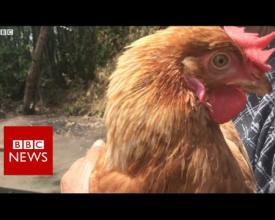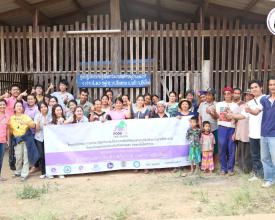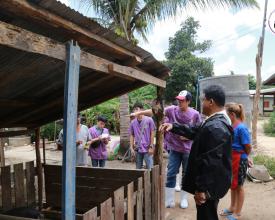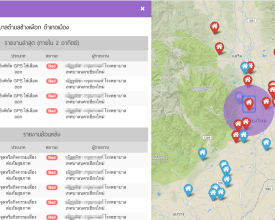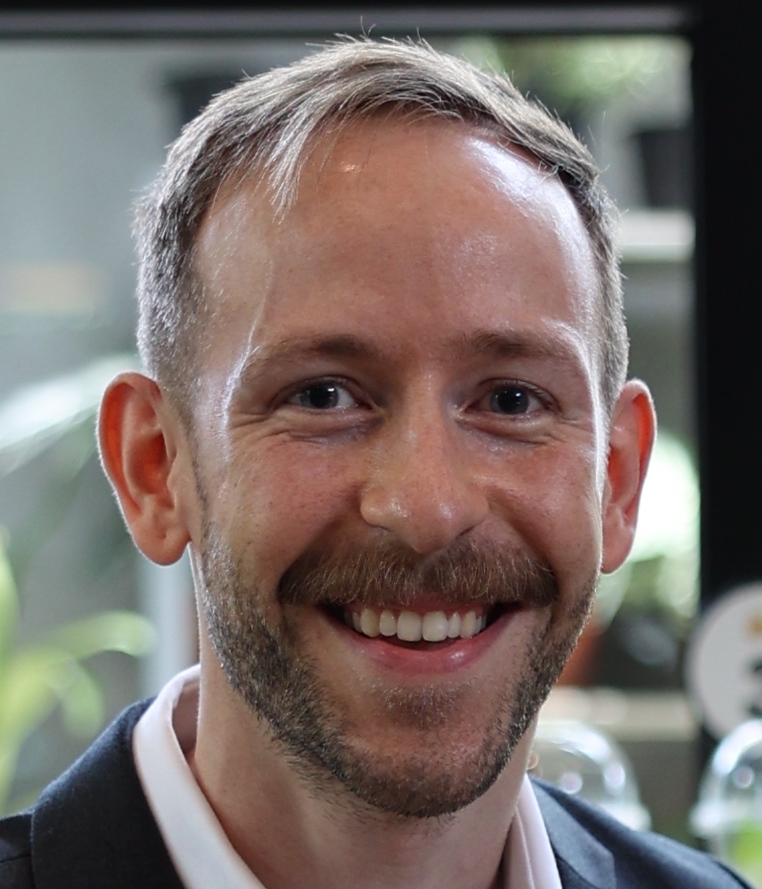PODD: A participatory surveillance platform that empowers communities to prevent zoonotic spillovers.
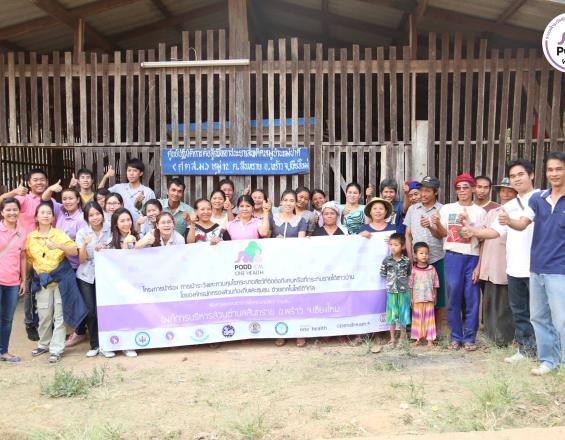
PODD is a participatory surveillance platform that empowers communities to prevent zoonotic spillovers.
We incentivize livestock owners to become “disease detectives,” operationalizing the critically important One Health approach, and preventing the next global pandemic before it begins. While you cannot train thousands of farmers to be epidemiologists, you can teach them to be the eyes and ears of the public health system.
We give farmers, livestock owners, and community volunteers a mobile application to take pictures of sick animals. The application sends these photos, along with observation notes (and geolocation data), to local veterinarians and health officials. When enough cases of sick animals with similar characteristics are reported within a defined radius, PODD triggers automated response actions.
Context
Challenges addressed
We are combating the spread of zoonotic emerging infectious diseases before they spread to humans and become pandemics. An estimated 60% of known infectious diseases—such as SARS, MERS, Avian Flu, Swine Flu, and HIV—are zoonotic in origin, meaning they “spillover” from animals to humans. Zoonosis represents over 75% of all emerging diseases, with COVID-19 serving as the latest example of how spillover events impact our world.
Zoonosis is a major barrier to poverty alleviation around the world, particularly in less developed countries that lack disease surveillance infrastructure and depend on animals for daily life. As our cities grow, expanding farmland and deforestation encroach on wild animal habitats, increasing the likelihood of spillover. This is especially worrying since the majority of livestock owners practice backyard farming in close proximity to other animals and people. According to most infectious disease experts, it’s not a matter of if—but when the next pandemic will happen.
Location
Process
Summary of the process
The PODD project is governed by three pillars: Local Government or local community, Community Volunteers, and PODD Technology. Relevant government, community, and non-governmental organizations should be involved as early as possible. It is important to know the PODD roles and responsibilities of national, regional and district levels, since assigning responsibilities prior to an outbreak reduces the need to divert time and energy during the outbreak.
Building Blocks
Community
Since 2014, PODD has been actively detecting abnormal health events and preventing outbreaks in Thailand with incredible support from both local governments and local communities. While PODD relies on software, the success of the project largely depends on the real-time data coming from our disease detectives in the field. These livestock owners are incentivized to provide health officials with direct disease data, since their own livelihood depends on the health of their animals.
Enabling factors
Community Members have a vested interest in reporting suspected illness on PODD, knowing it comes with expert veterinarian care for their animals—often provided even with false alarms. For livestock owners, this means improved animal health and a lessened risk of disease transmission. And if the case turns out to be a highly probable outbreak, then local health officials will quarantine the sick animals, thus saving the rest of the livestock and possibly their own families’ lives.
Lesson learned
-
The local communities who have PODD tend to trust their government more readily, as the open communication engenders mutual understanding and shared incentives of keeping communities safe.
-
Local communities also trust that their government will respond to problems quicker because the PODD system empowers them to signal to their government when there’s a problem to address.
-
Community engagement has increased as communities now have a tool they use to take action themselves in order to prevent outbreaks.
-
Volunteers’ performance with the PODD system over time requires firm commitment from local leadership, and periodic training and events to keep them engaged with the project.
-
The majority of backyard farmed animals live outside the capabilities of formal agricultural surveillance.
-
Many local people were still consuming or selling chickens, cows, pigs, and other animals that died of unknown causes – some of which could have died from avian influenza, foot and mouth disease, african swine fever, or other deadly diseases.
Government
The participation of “disease detectives” powers digital disease surveillance systems for local governments by better equipping them with relevant and timely data. Local health authorities can monitor the status of sick animals in real-time from their offices as farmers take pictures and upload them to the PODD system.
Enabling factors
Without government buy-in, data is just unactionable information. Indeed, national governments benefit as PODD adds surveillance capacities previously unavailable to them. Ministries of agriculture and public health have access to granular local data, which helps to improve understanding of disease trends, burden of disease, and inform allocation of (sometimes scarce) national resources for disease control.
Lesson learned
- Local governments also report feeling empowered to solve problems themselves, which makes them more engaged in finding solutions.
- In the first 3 months after launching PODD, more abnormal health events were reported than the entire previous year – which means that most animal illnesses and deaths were never reported in previous years.
Technology
The PODD Platform is the disease surveillance software powering PODD including a mobile app, outbreak manager, and API.
Disease data is collected into decentralized repositories owned and managed by local health and government officials via the PODD Manager. They are able to run reports and analyze the real-time data coming in from farms. When enough cases of sick animals with similar characteristics are reported within a defined radius, PODD Manager triggers the following actions:
-
Automated alerts are sent to local health authorities who manage the reported area.
-
Preliminary guidance is automatically delivered to the volunteer, instructing them to quarantine the animal and disinfect the surrounding areas.
-
The local officials will then communicate directly with the livestock owner via a chat feature within PODD Manager and dispatch a local response team, if necessary.
-
Local responders collect lab samples and work with community members on preventative or outbreak control measures.
-
All activity tracking and case outcomes are recorded in PODD Manager for historical case reporting.
Enabling factors
What makes the PODD technology innovative is that it brings the public back into public health. PODD is open source — 100% free to copy & use and globally accessible to anyone with an internet connection.
Lesson learned
The PODD app is easy to use even for rural users who have never owned a mobile phone, however some basic training on digital literacy, such as how to take clear photos, is still recommended.
Impacts
When you empower local communities with technology to solve problems themselves, they care more about the solution. Our theory of change is that giving communities tools to monitor the health of their environment, animals, and themselves is in fact the best way to stop spillovers before it’s too late.
While stopping “The Next Pandemic” has clear and tangible impacts for the world, preventing the frequent minor outbreaks matters as well. Smaller animal-only outbreaks matter not only because saving a local government millions in damages and keeping farmers in business are positive, but focusing on challenges that directly impact farmers’ lives leads to better preparedness for a pandemic when it arrives. Engaging farmers beyond rare pandemic events results in more participatory data—and stronger early detection systems in the future.
Since PODD launched in 2014, we’ve grown to include over 600 local government officials handling reported cases and over 20,000 “disease detectives” participating in community disease surveillance. Over the past six years, we’ve recorded 330,000 disease detection reports and successfully prevented widespread transmission in more than 100 animal outbreaks.
Beneficiaries
Livestock owners, Local governments, and National governments.

